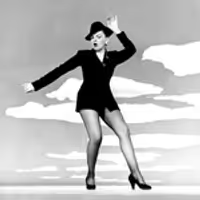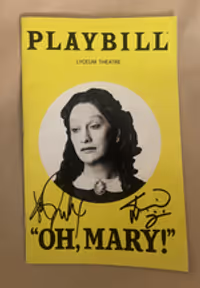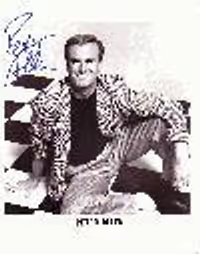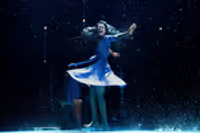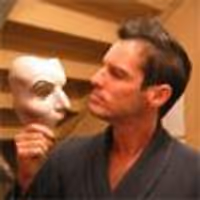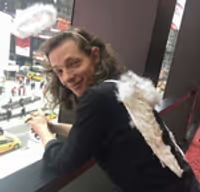Michael R. Jackson's new musical 'White Girl in Danger' to premiere Off-Broadway in March 2023
#175Michael R. Jackson's new musical 'White Girl in Danger' to premiere Off-Broadway in March 2023
Posted: 3/25/23 at 3:34am
Kad said: "TheOnlyOne2 said: "Kad said: "Life is too short to continue to sit through a show if you are truly not enjoying it. There is nothing rude or privileged about leaving at intermission, unless you are there specifically to support a loved one and they know you’re there. Nobody attends a show with the intent to leave halfway through."
The fact that you don't see the privilege... yikes. I'd debate that last sentence, because plenty of people in these threads are banging their keyboards waiting to talk **** about shows, lr hate watch them because they have an unchecked , miserable life.![]()
I need to stop I'm having too much fun battlin you heauxs lolz #pettynready"
Let me guess: you’re in college? Been there long enough to learn just enough to think you know everything, but haven’t been exposed to the world enough to discover you don’t?
That's Sutton Ross high on an edible in her parent's basement.
#176Michael R. Jackson's new musical 'White Girl in Danger' to premiere Off-Broadway in March 2023
Posted: 3/25/23 at 9:38am
“Again I disagree it's not the same as sitting on your ass at home and watching a TV show. We're sharing space. Next time I'm in your home and you're hosting, remind me to push the away and walk out the door when I find it unsatisfactory. In that way I guessed be showing you that I didn't like the content you provided me for the meal. I'll just walk out the door without a word, like switching the channel. Would you do that? No it's unfathomable.”
LOL the two are not the same in any stretch. One is people getting together in a home and sharing a meal or just quality time.
The other is an entity charging me the money that I work for day in and day out and the expectation is something if quality. Especially when it’s the work of someone who in very recent history not only won Tony Awards but also a Pulitzer, and a ton of other awards. If something I paid for isn’t up to my standards, I can choose to either throw it away, ask for a replacement, or return it and ask for a refund. In this situation, your options are sit through garbage that you’re not enjoying, or leave and go do something you would actually enjoy.
Kim Cattrall said it best. “I don't want to be in a situation for even an hour where I'm not enjoying myself.” In this case, it was three hours. Let people do what they want with THEIR money. You don’t control people’s priorities or opinions.
#177Michael R. Jackson's new musical 'White Girl in Danger' to premiere Off-Broadway in March 2023
Posted: 3/25/23 at 10:12am
...Anywho. I'm going back this afternoon (Thanks, TodayTix Rush!). Will report back
#178Michael R. Jackson's new musical 'White Girl in Danger' to premiere Off-Broadway in March 2023
Posted: 3/25/23 at 11:13am
“Again I disagree it's not the same as sitting on your ass at home and watching a TV show. We're sharing space."
It's true, when you go to the theater you're sharing space with the cast, crew, and patrons. But, I don't know you, owe you a thing and if the show sucks and I'm not having a good time, I'll leave at intermission. It's called free will and you have certainly exercised it here.
#179Michael R. Jackson's new musical 'White Girl in Danger' to premiere Off-Broadway in March 2023
Posted: 3/25/23 at 1:23pm
The bickering on here is very annoying. This show is great, and the cast and design are spectacular! How often do we get to see something this bold, funny, creative, messy, and unapologetic in such a glittery and extravagant production? I think we're very lucky to have this playing in Times Square.
Ran about 2:50 last night, but only the first act felt long.
#180Michael R. Jackson's new musical 'White Girl in Danger' to premiere Off-Broadway in March 2023
Posted: 3/25/23 at 5:01pm
Saw White Girl In Danger Friday night - the earlier reported running time of 3 hours and 15 minutes has been pared down to 2 hours and 40 minutes including the intermission and it’s still too long. Where Strange Loop was personal and filled with genuine catharsis, White Girl in Danger plays more like a thesis dissertation, a concept in search of a stage format. In WGID Michael R Jackson examines and comments on the history and future of black female TV characters and actors, in a Candide-like satirical cavalcade. He envisions the character types and tropes of the past handing off their passive and abused history to their present and future more empowered versions. By presenting much of it as satire we are distanced from the character attachments made in Strange Loop until very late in the 2nd act when gears switch into sermon mode and the under-developed author/writer character literally stops the show to explain the point of the previous two hours. If only that heat and poetic specificity had been sprinkled throughout the proceedings, we may have had something that packed the punch of an Ain’t No Mo’- please someone bring that back before Tony’s.
In WGID we get a satire staged as a farce at break neck speed that doesn’t have the time to breathe and build our buy in. Rather than take us on a ride it seems to have left us in the bleachers to watch the characters careen around the track exhibiting moments of brilliance if we don’t blink. Those moments of brilliance are surrounded by repetitive bits that are either annoying or let the audience get ahead of the actors, leading to impatience. The idea of using three white girl types puts a structure in place where we quickly realize we are going to have to sit thru many scenes played out three times over with less pay off at each iteration. The effect might have been to build on a laugh but in the end it slowed down the proceedings, adding to the overlong running time. In an attempt at camp or severe underlining, the terms “All White” and “Blackground” are used in practically every line spoken. It not only gets in the way of many line deliveries but steals emphasis from new points being made. Because the satire is aimed at soap operas, sitcoms and Fox and CW nighttime series of the 90’s it also drops a laundry list of actor’s names as if dropping the names were enough to qualify for a laugh. The use of those names suggests some universal knowledge of the actors and characters they played. Between the triple replays of the three white girls, the over use of All White and Blackground and the name dropping they could have shaved 40 minutes form the play and used that time to make the piece more effective.
In his second time out with a musical, Jackson’s music is proving to be more serviceable to his concepts than interesting musically on their own. Except for his takeoff/rip off of the gospel number from Hairspray there are no exceptional “musical” moments to support why this should be a musical. The staging is more like air traffic control and choreography does not elevate things. This was the first time I’ve noticed inadequate lighting in a show. Perhaps it was due to last-minute changes, but many times actors were not lit. The sound mix for the musical numbers was also very frustrating, it emphasized the band over the lyrics. We had moments where you could not hear the lyrics and you could not see the face of the actor singing the lyrics.
As far as the performers were concerned only Tarra Conner Jones registered as exceptional. She plays the mother type (Mammie, Marla Gibbs, Nell Carter, Diahann Carroll) and has a lopsided amount of the song distribution. Her character’s purpose is to show how black female characters developed over time and Jackson makes her one in the same person on a journey not of her own making. In that one character and Tarra’s performance you see what could have been developed if the cyclone of concepts and bad comedy writing were not also whirling around the stage for 160 minutes. I do question where the dramaturg and director were in the development of this production. I wonder if a George C Wolf could have made better stage sense out of it.
They have two weeks until opening, I’m not sure enough can be done while also in performance. I think minimally they need to cut enough to allow the cast to slow down and still get everyone out of the theater at a decent hour. I am attaching a link to a September 2017 description of the show by the author before he was about to unveil the play to the public. Based on this I would say he has fulfilled the brief in presenting evidence but has yet to make it work on stage. PS: They should cut the pre-show and intermission videos - embarrassing.
White Girl In Danger at Adelphi University Performing Arts Center and Joe’s Pub 9/24 & 9/25 2017
JasonC3
Broadway Legend Joined: 4/22/21
#181Michael R. Jackson's new musical 'White Girl in Danger' to premiere Off-Broadway in March 2023
Posted: 3/25/23 at 5:05pm
Thanks for taking the time to provide such a detailed and thoughtful reaction to the performance you saw. Appreciate the insights.
#182Michael R. Jackson's new musical 'White Girl in Danger' to premiere Off-Broadway in March 2023
Posted: 3/25/23 at 5:23pm
I would absolutely love to know what physical aspects make this lower-budget production “glittery and extravagant”. I’ve seen college shows with more extravagance.
#183Michael R. Jackson's new musical 'White Girl in Danger' to premiere Off-Broadway in March 2023
Posted: 3/25/23 at 10:11pm
The evening performance tonight (Saturday) was canceled at 7:30pm. They told us it was "technical difficulties". I went to see a friend in the cast and saw her while the audience were getting refunds or exchanging, she said the platforms used to move scenery on and off were completely broken and needed more than 2 hours to be fixed. Looking forward to rebooking for sometime next week. The house manager mentioned it was a sold out performance.
TheOnlyOne2
Understudy Joined: 1/2/22
#184Michael R. Jackson's new musical 'White Girl in Danger' to premiere Off-Broadway in March 2023
Posted: 3/25/23 at 10:41pm
GiantsInTheSky2 said: "“Again I disagree it's not the same as sitting on your ass at home and watching a TV show. We're sharing space. Next time I'm in your home and you're hosting, remind me to push the away and walk out the door when I find it unsatisfactory. In that way I guessed be showing you that I didn't like the content you provided me for the meal. I'll just walk out the door without a word, like switching the channel. Would you do that? No it's unfathomable.”
LOL the two are not the same in any stretch. One is people getting together in a home and sharing a meal or just quality time.
The other is an entity charging me the money that I work for day in and day out and the expectation is something if quality. Especially when it’s the work of someone who in very recent history not only won Tony Awards but also a Pulitzer, and a ton of other awards. If something I paid for isn’t up to my standards, I can choose to either throw it away, ask for a replacement, or return it and ask for a refund. In this situation, your options are sit through garbage that you’re not enjoying, or leave and go do something you would actually enjoy.
Kim Cattrall said it best. “I don't want to be in a situation for even an hour where I'm not enjoying myself.” In this case, it was three hours. Let people do what they want with THEIR money. You don’t control people’s priorities or opinions."
Actually, they are very similar. Hosting people home is very theatrical, and spending quality time with someone and exchanging intimate feelings is exactly what happens in the theater, so have several seats.
That's a quote from a tired show filled with priveleged white people which I personally cannot relate to. Years after they fluttered about peolles screens, now the writer is trying to make them more acceptable instead of just leaving them the basic b****** they were with abyssmal and offensive. But if thats where your go to mantras come from, go off sis. And I'm not trying to control your opinion, I'm just sharing mine. If I think yours is a mess I'll say so. I saw a boring ass, I'll conceived show Off Broadway tonight, and they absurdly try to throw a black woman in to a character that that was written to be a white woman from the 60s to the 90s. Nothing about that choice made sense and was distracting, along with the mediocre musical itself. I hated it, but I didn't leave because it's rude, and I definitely wasnt going to demand my coins back because the creatives didnt satisfy my appetite. Like I said its a privilege to attend the theater.
In the end we don't agree that's fine, enjoy how you conduct your life babes. ![]()
#185Michael R. Jackson's new musical 'White Girl in Danger' to premiere Off-Broadway in March 2023
Posted: 3/26/23 at 7:59am
It’s actually a direct quote from an actress, not from a television show (so half of your paragraph makes no sense as a response) but continue to tell people to ‘take several seats’ because you’re on your high horse. Go off sis, clearly not trying to control anything at all. Slay.
#186Michael R. Jackson's new musical 'White Girl in Danger' to premiere Off-Broadway in March 2023
Posted: 3/26/23 at 10:18am
I saw the matinee yesterday and thought it was hilarious, though I definitely agree it’s way too long and the second act really drags for a bit. Yesterday matinee (3/25) was just about 3 hours including intermission.
There were many people who left during intermission. I wish the old couple near me who hated it had also left instead of staying and then chattering on to each other throughout the second act about how bad it was and what were the characters saying and what does cancel culture mean? They had to be shushed multiple times by people.
#187Michael R. Jackson's new musical 'White Girl in Danger' to premiere Off-Broadway in March 2023
Posted: 3/26/23 at 1:42pm
I saw this show last Thursday and I did actually enjoy it. The soap opera format was very unique, and it was a great callback to the telenovelas that I had watched when I was younger. I believe the show was 3 hours long when I saw it as well, but they were an enjoyable 3 hours at least.
I think it tries to tackle a lot of issues that will be difficult for the general theatre audience to digest, hence why people left during intermission. It’s also quite sexual at times as well, which didn’t help its case.
I’m going to discuss a few plot spoilers from the mid/end of the efirst act onward, just to provide a fuller review.
A lot of the things I enjoyed fell in the second act, but I particularly loved watching Keesha and her mothers dynamic change drastically as Keesha changed and discovered herself even further. When Keesha starts assimilating herself to become more like the Allwhite folks, her mother remains true to herself and still is able to be “promoted” in the show from lunch lady to nurse and eventually lawyer. This contrasts beautifully with Keesha whose blonde streaks slowly show her adopting Allwhite traits that are less desirable as a way to become like them and become promoted, such as her anorexia and allowing abuse. As a POC audience member, it really resonated to see myself represented on stage with two seperate journeys of how gaining white acceptance can be. Even after the mother is promoted in Allwhite, she still has flaws the the daughter educates and works with her on, such as in the scene where Keesha comes out to her mother, her mother will not accept her. I also think the monologue helps explain some of these complexities in the show to audience members who may not understand conflicts that arise in black society, such as the rampant homophobia and lack of support for even their own people. A Strange Loop also addresses this (In my opinion, in a better and more concise way), however it is not often that lesbian stories are brought to the forefront in comparison to gay male stories.
I also think the murder plotline as a metaphor for police violence would be great if it didn’t cause so many characters to come back to life as ghosts on stage (it felt too supernatural and out of place imo) and if the creator didn’t take credit for the deaths. One of EWM’s characters as the killer would make more sense, considering how they’re also clear representations of various issues that boyfriends in society can have.
Overall, I believe it was a solid beginning for a great show. it needs to be tightened up, but it’s a great piece of art. Unfortunately though, it’ll have a similar problem to “Ain’t no mo.” It’s filling such a specific audience niche, it’s not something easy to consume for tourists (besides from being a musical), and for this show specifically the sexual nature will not be super digestable for elderly audiences (SPOILERS: there’s a scene of somebody being tied to a bed almost, a man asking to be pegged, a song about lesbian sex, and the final chariot scene is arguably sexual too).
I would love to see this as a little limited run from April to July 2024 in a smaller theatre like the Hayes or Lyceum, so it’s in just before the Tony deadline and so there is time to work on this show once more in the Tristate Area to gain an audience and fix some of the things that still need some tuning, but iin the end, it will likely have a fate somewhere between Ain’t No Mo and A Strange Loop: General audiences won’t 100% get it, but people will understand it’s an art piece and view with discretion.
#188Michael R. Jackson's new musical 'White Girl in Danger' to premiere Off-Broadway in March 2023
Posted: 3/26/23 at 1:48pm
dearalanaaaa said: “I would love to see this as a little limited run from April to July 2024 in a smaller theatre like the Hayes or Lyceum, so it’s in just before the Tony deadline and so there is time to work on this show once more in the Tristate Area to gain an audience and fix some of the things that still need some tuning, but iin the end, it will likely have a fate somewhere between Ain’t No Mo and A Strange Loop: General audiences won’t 100% get it, but people will understand it’s an art piece and view with discretion.”
I feel like it may need another out of town run to tune things up even more before it goes to Broadway.
Also, I could see it going in the Hayes, Music Box, or the Booth, but this is NOT a show for the Lyceum. That balcony, at its highest, had you sitting with the Father, Son, and Holy Ghost, and this show needs a certain level of “watching TV” type of intimacy to be effective.
TheOnlyOne2
Understudy Joined: 1/2/22
#189Michael R. Jackson's new musical 'White Girl in Danger' to premiere Off-Broadway in March 2023
Posted: 3/26/23 at 2:03pm
Up In One said: "Saw White Girl In Danger Friday night - the earlier reported running time of 3 hours and 15 minutes has been pared down to 2 hours and 40 minutes including the intermission and it’s still too long. Where Strange Loop was personal and filled with genuine catharsis, White Girl in Danger plays more like a thesis dissertation, a concept in search of a stage format. In WGID Michael R Jackson examines and comments on the history and future of black female TV characters and actors, in a Candide-like satirical cavalcade. He envisions the character types and tropes of the past handing off their passive and abused history to their present and future more empowered versions. By presenting much of it as satire we are distanced from the character attachments made in Strange Loop until very late in the 2nd act when gears switch into sermon mode and the under-developed author/writer character literally stops the show to explain the point of the previous two hours. If only that heat and poetic specificity had been sprinkled throughout the proceedings, we may have had something that packed the punch of an Ain’t No Mo’- please someone bring that back before Tony’s.
In WGID we get a satire staged as a farce at break neck speed that doesn’t have the time to breathe and build our buy in. Rather than take us on a ride it seems to have left us in the bleachers to watch the characters careen around the track exhibiting moments of brilliance if we don’t blink. Those moments of brilliance are surrounded by repetitive bits that are either annoying or let the audience get ahead of the actors, leading to impatience. The idea of using three white girl types puts a structure in place where we quickly realize we are going to have to sit thru many scenes played out three times over with less pay off at each iteration. The effect might have been to build on a laugh but in the end it slowed down the proceedings, adding to the overlong running time. In an attempt at camp or severe underlining, the terms “All White” and “Blackground” are used in practically every line spoken. It not only gets in the way of many line deliveries but steals emphasis from new points being made. Because the satire is aimed at soap operas, sitcoms and Fox and CW nighttime series of the 90’s it also drops a laundry list of actor’s names as if dropping the names were enough to qualify for a laugh. The use of those names suggests some universal knowledge of the actors and characters they played. Between the triple replays of the three white girls, the over use of All White and Blackground and the name dropping they could have shaved 40 minutes form the play and used that time to make the piece more effective.
In his second time out with a musical, Jackson’s music is proving to be more serviceable to his concepts than interesting musically on their own. Except for his takeoff/rip off of the gospel number from Hairspray there are no exceptional “musical” moments to support why this should be a musical. The staging is more like air traffic control and choreography does not elevate things. This was the first time I’ve noticed inadequate lighting in a show. Perhaps it was due to last-minute changes, but many times actors were not lit. The sound mix for the musical numbers was also very frustrating, it emphasized the band over the lyrics. We had moments where you could not hear the lyrics and you could not see the face of the actor singing the lyrics.
As far as the performers were concerned only Tarra Conner Jones registered as exceptional. She plays the mother type (Mammie, Marla Gibbs, Nell Carter, Diahann Carroll) and has a lopsided amount of the song distribution. Her character’s purpose is to show how black female characters developed over time and Jackson makes her one in the same person on a journey not of her own making. In that one character and Tarra’s performance you see what could have been developed if the cyclone of concepts and bad comedy writing were not also whirling around the stage for 160 minutes. I do question where the dramaturg and director were in the development of this production. I wonder if a George C Wolf could have made better stage sense out of it.
They have two weeks until opening, I’m not sure enough can be done while also in performance. I think minimally they need to cut enough to allow the cast to slow down and still get everyone out of the theater at a decent hour. I am attaching a link to a September 2017 description of the show by the author before he was about to unveil the play to the public. Based on this I would say he has fulfilled the brief in presenting evidence but has yet to make it work on stage. PS: They should cut the pre-show and intermission videos - embarrassing.
White Girl In Danger at Adelphi University Performing Arts Center and Joe’s Pub 9/24 & 9/25 2017"
I agree with you on most of this Very thoughtful review. You can see the show in there, he just needs to get out of his own way. This is Tarras show and maybe another workshop could refocus that. Maybe cut out Keesha and make her a minor character, and go with Nell observing the girls behavior from her vintage point in Act One as lunch lady and nurse.
#190Michael R. Jackson's new musical 'White Girl in Danger' to premiere Off-Broadway in March 2023
Posted: 3/26/23 at 9:06pm
quizking101 said: "dearalanaaaa said: “I would love to see this as a little limited run from April to July 2024 in a smaller theatre like the Hayes or Lyceum, so it’s in just before the Tony deadline and so there is time to work on this show once more in the Tristate Area to gain an audience and fix some of the things that still need some tuning, but iin the end, it will likely have a fate somewhere between Ain’t No Mo and A Strange Loop: General audiences won’t 100% get it, but people will understand it’s an art piece and view with discretion.”
I feel like it may need another out of town run to tune things up even more before it goes to Broadway.
Also, I could see it going in the Hayes, Music Box, or the Booth, but this is NOT a show for the Lyceum. That balcony, at its highest, had you sitting with the Father, Son, and Holy Ghost, and this show needs a certain level of “watching TV” type of intimacy to be effective."
Yeah, smaller theatres!! I'm not sure why I imagined the Lyceum as small, my brain was still thinking of ANM. The Hayes & possibly the Music Box are a great size, assuming Kimberly Akimbo holds down the fort over at the Booth.
TheOnlyOne2
Understudy Joined: 1/2/22
#191Michael R. Jackson's new musical 'White Girl in Danger' to premiere Off-Broadway in March 2023
Posted: 3/26/23 at 10:51pm
GiantsInTheSky2 said: "It’s actually a direct quote from an actress, not from a television show (so half of your paragraph makes no sense as a response) but continue to tell people to ‘take several seats’ because you’re on your high horse. Go off sis, clearly not trying to control anything at all. Slay."
Exactly why I wouldn't know that, it's from tired ass white woman who isn't relevant. I'm not on a high horse, I just don't like ur bull****. :)
And thanks for cackle at the end lol. That's all I'll say about that without deconstructing that mess.
Also I'm putting this back and forth down. We need notdistract from this thread anymore.
TheOnlyOne2
Understudy Joined: 1/2/22
#192Michael R. Jackson's new musical 'White Girl in Danger' to premiere Off-Broadway in March 2023
Posted: 3/26/23 at 11:04pm
I took my best friend to go see the show again and Act 1 was just under 90 mins. They've cut u believe 3 songs overall, ( I'll have to Doble check it might be only 2). Aside from that, they still have left in that 20 min monologue. My sis,who has never seen or read a show by MRJ, instantly asked if Clarence was the writer putting himself om the show, during intermission. I said yes, and then she was horrified by the never ending monologue.
Alex Kulak2
Broadway Legend Joined: 9/11/16
#193Michael R. Jackson's new musical 'White Girl in Danger' to premiere Off-Broadway in March 2023
Posted: 3/26/23 at 11:17pm
Only asking because I'm a dork about this thing and there's been no mention about it on this board or (even stranger), the Second Stage web page:
Who's the orchestrator? What does the band look like?
DaveyG
Broadway Star Joined: 8/11/05
#194Michael R. Jackson's new musical 'White Girl in Danger' to premiere Off-Broadway in March 2023
Posted: 3/26/23 at 11:37pm
It’s a mess. Some moments of brilliance, but mostly a jumbled, long, unfocused piece. Tarra is giving a wonderful performance, but the material needs a lot of work if it has any hope of moving beyond Second Stage.
#195Michael R. Jackson's new musical 'White Girl in Danger' to premiere Off-Broadway in March 2023
Posted: 3/27/23 at 1:33am
Wow, I’d just hate to think what the majority of you would think of Into the Woods and Sunday in the Park With George if they opened today. Sheesh. The first act sets up the second act perfectly to build something truly transcendent, inspiring, and deeply personal to take away from the theatre. I loved the monologue. Couldn’t have the show without it. Then it really wouldn’t make sense! The first act is a bit too long I think, but I was consistently entertained and brought to laughter by Michael R Jackson’s music and jokes. It is different, it is current, it is messy, it is asking questions, it is trying to explore the state of making entertainment, and how entertainment has been made, and how this particular writer makes sense of all that and his place in it, and I say BRAVO! I just loved allll the Easter eggs in this show! Michael R Jackson is so good at referencing other musicals and shows and it’s done with specificity and honor I find. I don’t know how popular this show will be, but god I hope it’s not forgotten or dismissed. The only other slightly negative thing I’ll say is about the choreography. I think this choreographer does excellent character work/movement, but I want more from the dancing.
#196Michael R. Jackson's new musical 'White Girl in Danger' to premiere Off-Broadway in March 2023
Posted: 3/27/23 at 10:27am
I forgot to post my review from Saturday:
There was about 35-40 minutes pared down from the first preview, a lot of which was material that I could only recall vaguely since it didn't move the story along at all. Granted, I very much missed Liz Lark Brown's three-mother number since it removes quite a bit of context leading to the trial in Act I.
I also noticed quite a few costumes changes and omissions, and it appeared like a lot of Tarik's material beyond Act I was cut and he definitely faded more into the "Blackground" (pun intended).
I still think the material is great and has absolutely great potential, Tarra Connor Jones is a powerhouse and James Jackson, Jr really does burn down the house with his monologue and song at the end of Act II. Honestly, it's worth a viewing, especially since the tickets go down to as low as $39 for most performances and the TodayTix rush was in the second row (B105).
I'm going back April 12th and hopefully the show will be frozen by then.
#197Michael R. Jackson's new musical 'White Girl in Danger' to premiere Off-Broadway in March 2023
Posted: 3/28/23 at 11:14pm
I saw this tonight and am very glad I did. Yes, it's long- just under 3 hours. And yes, it's kind of a wild ride that doesn't so much send up soap opera tropes as boil them together and freebase them. But I was totally engaged and thoroughly entertained the entire time. Michael R. Jackson is such a singular voice with a singular point of view in American musical theatre right now and I am very thankful for him.
And holy **** Tarra Connor Jones is giving a star turn performance. She is reason enough to see this.
JasonC3
Broadway Legend Joined: 4/22/21
#198Michael R. Jackson's new musical 'White Girl in Danger' to premiere Off-Broadway in March 2023
Posted: 3/29/23 at 8:00am
"it's kind of a wild ride that doesn't so much send up soap opera tropes as boil them together and freebase them."
Now that is a pull quote that would get people's attention lol.
#199Michael R. Jackson's new musical 'White Girl in Danger' to premiere Off-Broadway in March 2023
Posted: 4/5/23 at 9:13am
According to some of the cast members on Instagram, the show is officially frozen for those who were holding out until it was
Videos



